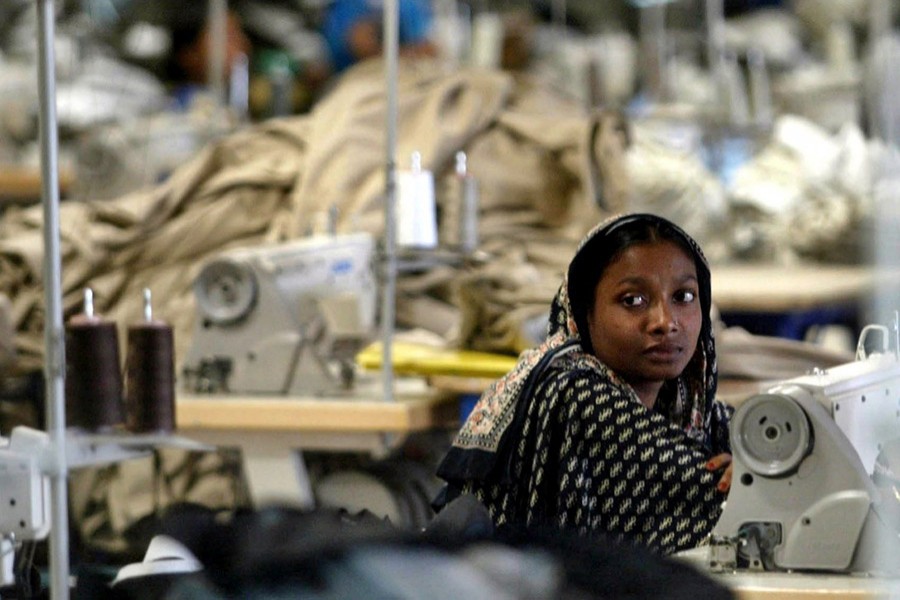
Published :
Updated :

About 21 per cent of garment workers responded in a survey that their factories do not grant sick leave, a mandatory obligation for the employers by law, according to a latest report.
Female workers struggle more with the production targets set by the management than the male workers, the report titled 'The Workers' Voice Report 2019' also revealed.
The fourth edition of the report, jointly done by Awaj Foundation and Consulting Service International Ltd (CSI), was launched on Tuesday.
Despite improvements in the past, safety, health and labour conditions still put the workers' lives at risk, said the report that intended to shed light on the working conditions from a gender perspective and analyse the socioeconomic factors that sustain gender inequality.
The survey was conducted among 447 workers of the readymade garment (RMG) factories between September and December 2018.
"Factories prefer to hire young women who are less likely to take sick leave and maternity benefits," it said.
In Bangladesh, the employers are legally obliged to grant 14 days of paid sick leave per year, it said, adding that employees need to present a medical certificate by a practicing physician.
"Despite workers, who are required to take time off from work for medical reasons, being protected by the law, 21 per cent of all respondents work in factories that do not provide sick leave. This is a serious violation of the law that is to guarantee that every employee is entitled to medical leave," the report reads.
Majority or 88 per cent of the surveyed workers responded that they have not been involved in an accident with injuries in the factory they are currently employed at.
It suggested more research to investigate whether and why male workers are exposed to a greater risk of occupational injuries (17 per cent vs. 10 per cent).
Some 84 per cent of the respondents opined that their daily production target has increased compared to last year, according to the report.
Constant pressure to increase productivity can be compensated more easily by younger workers who do not yet have to face multiple strains at home and at work, it said.
Female workers responded that they often stuck in low-skilled and thus low-paid operations.
Some 68 per cent of them were operator and assistant positions in their companies as opposed to 13 per cent of the male respondents, a percentage that is far from parity, it said.


 For all latest news, follow The Financial Express Google News channel.
For all latest news, follow The Financial Express Google News channel.